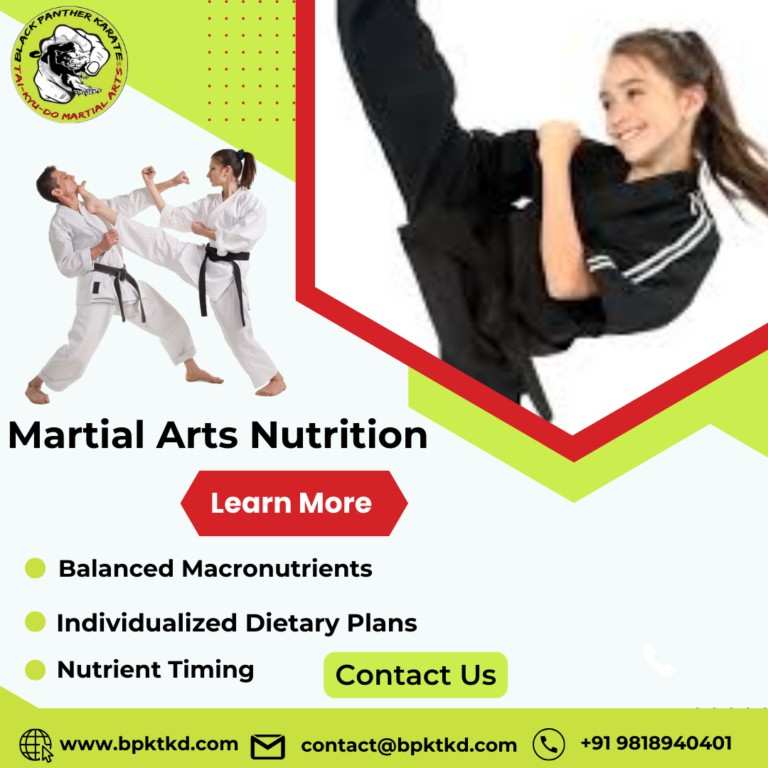
Martial Arts Nutrition: Nourishing Your Body for Peak Performance in Self-Defense Training
Introduction:
Martial arts is not just a physical discipline; it is a holistic practice that requires a combination of physical fitness, mental focus, and proper nutrition. In the realm of self-defense training, nutrition plays a pivotal role in preparing the body for the physical and mental demands of martial arts. This blog delves into the importance of martial arts nutrition and how fueling your body with the right nutrients is crucial for optimal performance in self-defense training.
Understanding the Unique Demands of Self-Defense Training:
Self-defense training involves a diverse range of physical activities, including striking, grappling, and cardiovascular conditioning. The intensity and variability of these activities place unique demands on the body, necessitating a tailored approach to nutrition. Proper nutrition not only supports physical performance but also contributes to mental alertness, quick decision-making, and overall well-being during self-defense training.
Key Components of Martial Arts Nutrition:
Balanced Macronutrients:
Protein: Essential for muscle repair and development. Protein sources such as lean meats, fish, eggs, and plant-based proteins should be incorporated into the diet to support the demands of self-defense training.
Carbohydrates:
Serve as the primary energy source. Opt for complex carbohydrates like whole grains, fruits, and vegetables to provide sustained energy for training sessions.
Healthy Fats:
Support overall health and provide a secondary source of energy. Include sources like avocados, nuts, seeds, and olive oil in your diet.
Hydration:
Staying adequately hydrated is fundamental for optimal performance. Water plays a crucial role in regulating body temperature, lubricating joints, and transporting nutrients. During self-defense training, especially in intense sessions, it’s essential to stay hydrated to prevent fatigue and enhance recovery.
Micronutrients:
Vitamins and Minerals: Support various physiological processes, including energy metabolism and immune function. A well-rounded diet with a variety of fruits and vegetables ensures an adequate intake of essential vitamins and minerals.
Electrolytes:
Important for maintaining proper fluid balance, especially during intense training sessions. Foods like bananas, oranges, and coconut water can contribute to electrolyte replenishment.
Timing of Meals:
Pre-Training Meals:
Consuming a balanced meal 2-3 hours before self-defense training provides the body with the necessary nutrients and energy. Include a mix of carbohydrates, protein, and a small amount of healthy fats.
Post-Training Nutrition:
The post-training period is crucial for replenishing glycogen stores and facilitating muscle recovery. A combination of protein and carbohydrates within 30-60 minutes after training helps optimize recovery.
The Role of Nutrition in Mental Focus and Alertness:
Self-defense training requires not only physical prowess but also mental acuity. Proper nutrition influences cognitive function, concentration, and decision-making abilities. Key nutrients that support mental focus include omega-3 fatty acids (found in fish, flaxseeds, and walnuts), antioxidants (found in fruits and vegetables), and hydration.
A well-nourished brain enhances reaction time, situational awareness, and the ability to execute techniques effectively during self-defense scenarios.
Tailoring Nutrition to Individual Needs:
Every martial artist engaged in self-defense training has unique nutritional requirements based on factors such as age, gender, training intensity, and specific goals. Personalizing nutrition ensures that the body receives the right balance of nutrients to meet individual needs and optimize performance.
Consulting with a nutritionist or dietitian who understands the demands of martial arts can help develop a personalized nutrition plan that aligns with individual goals and enhances overall well-being.
Fueling Recovery for Consistent Training:
Recovery is a crucial aspect of self-defense training. Nutrition plays a key role in the recovery process by replenishing glycogen stores, repairing muscle tissue, and reducing inflammation. Including protein-rich foods in post-training meals and snacks supports muscle recovery, while adequate hydration aids in the elimination of metabolic byproducts and reduces the risk of injury.
Integration of Nutrition Education in Self-Defense Programs:
Recognizing the importance of nutrition in overall performance, many self-defense programs, including those in Ghaziabad, are incorporating nutrition education into their training curriculum. Martial artists in Ghaziabad are gaining insights into how proper nutrition can enhance their abilities, both in physical techniques and mental resilience during self-defense situations.
Conclusion:
Martial arts nutrition is a dynamic and integral component of self-defense training. Nourishing the body with the right balance of macronutrients, micronutrients, and hydration supports optimal physical and mental performance. In Ghaziabad and beyond, martial artists are realizing the profound impact of nutrition on their abilities, and the integration of sound nutritional practices is becoming an essential aspect of comprehensive self-defense training programs. By understanding and prioritizing nutrition, martial artists empower themselves to face the challenges of self-defense training with vitality, resilience, and a sustained commitment to improvement.

